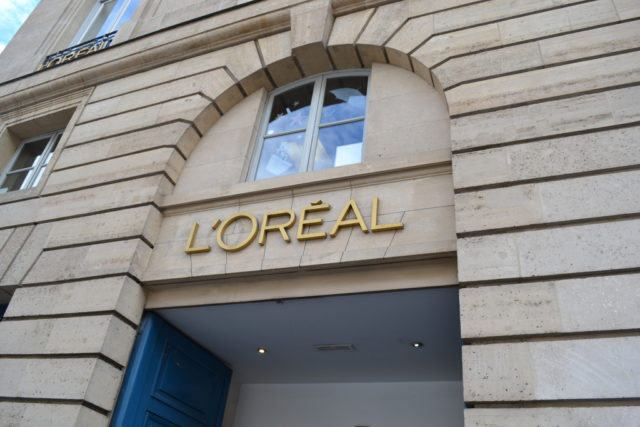On September 20, 2017, Liliane Bettencourt, the heiress to the L’Oréal cosmetics company, died at the age of 94. As the wealthiest woman in the world with an estimated net worth of $44 billion, her life was often under scrutiny, but nothing was as damaging as the revelation that her father was a Nazi collaborator.
He was anti-Communist, anti-Semitic, and anti-Republican, believing that democracy only brought incompetent people to power. In one of his books, La révolution de l’économie, Schueller stated, “We must rip from men’s hearts the childish concepts of liberty, equality, and even fraternity,” which can only “lead to disaster.”
Eugène Schueller was born March 20, 1881, in Paris, France. He was an alumni of the Institut de Chimie Appliquée de Paris, where he studied chemistry. His first job was as a laboratory assistant, but he soon found his calling when he was asked by a Parisian barber to help develop a hair dye that, unlike what was offered at the time, had no lead or toxic ingredients. Schueller experimented and worked to develop a new hair dye, and in 1909, the Société française de teintures inoffensives pour cheveux (the French Company of Inoffensive Hair Dyes) was born. Not long after, he renamed his company L’Oreal.
As a young man, he was interested in Socialism and investigated and joined the Freemasons for three years. On the cusp of the Great Depression, he started writing books, appearing on radio shows, and addressing the public, trying to get everyone else aligned with his way of thinking. One of his ideas was paying workers according to their production rather than a salary, but it never took hold. Schueller began to lean more and more toward favoring a dictatorship.

The French government had been on shaky ground ever since the end of the Napoleonic dynasty in 1871, and Schueller’s attitude was changing. When the forward-thinking Jewish socialist Léon Blum was elected by Parliament in the 1930s and instituted his radical ideas such as a five-day work week, wage increases to keep up with the cost of living, and two-week vacations, Schueller bristled. His response was to join La Cagoule, the most violent of the radical groups that was launched during this time. Schueller allegedly helped to finance assassinations, bombings, and even gave the group room in his offices.
During the German occupation of France in World War II, Schueller was known to admire the style of Hitler and Mussolini. His speeches and books became increasingly pro-Nazi to the point of including some of Hitler’s writings. He befriended Nazi officers and invested in German companies, secretly providing war materials to the Germans, with his profits growing at an astonishing rate.
As with many Nazi sympathizers, Schueller regretted his outspokenness when the war came to an end. Hitler was dead and the Nazis and their associates were being tried and executed for their crimes. On November 6, 1946, the French government caught up with Schueller. His case was heard by the Court of Justice of the Department of the Seine, and he was charged with collaboration. When his accounts were examined and witnesses were brought in, Schueller was able to evade his crimes by having witnesses claim they knew Schueller was hiding Jews, giving special treatment to the French who were supposed to have reported to the German Army, and giving money to the French Resistance.
His official financial records showed only minor transactions with the Germans, so his case was dismissed. Oddly enough, a few years later many of the members of the now defunct La Cagoule occupied important positions in the L’Oreal Company.
The German L’Oreal headquarters is situated on a site in Karlsruhe, in Germany, that was seized from a prominent Jewish family, the Rosenfelders, during the war. Edith Rosenfelder and her family filed a lawsuit against L’Oreal and their insurance company in 2001. She lost her case and the appeal, but her daughter, Monica Waitzfelder, is continuing the fight and published L’Oréal a pris ma maison (L’Oréal Took my House) in 2006.

In 1957, Eugène Schueller died and left his company and billions of dollars to his only child, Liliane. She stayed with L’Oreal as a Director but never became involved in the inner workings of the company. She was perceived as a generous philanthropist in the areas of medical research, education, and the arts.
Her daughter, Francoise Bettencourt-Meyers, married the grandson of a rabbi murdered at Auschwitz and decided to raise their children as Jewish. She is an author of works on religion.
